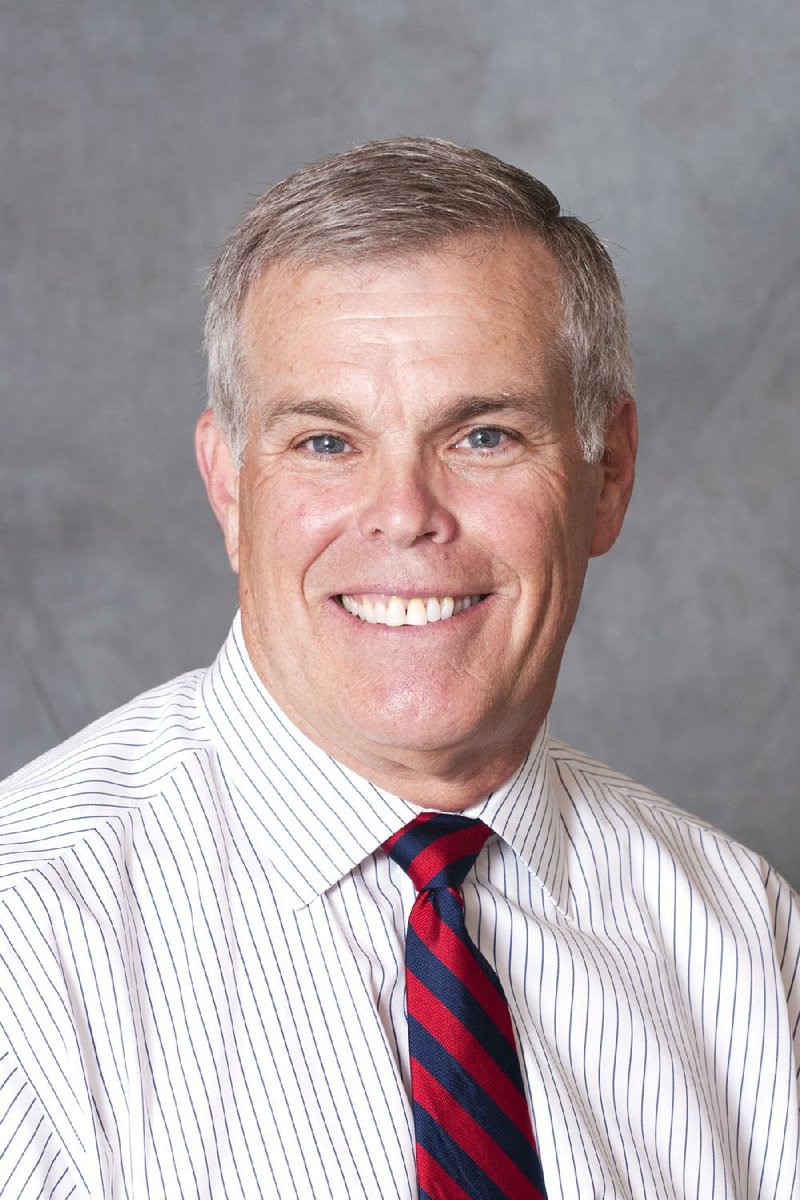After an almost hour-long debate Tuesday, state Rep. Dan Sullivan, R-Jonesboro, agreed to delay a bill that would eliminate a questionnaire that children's behavioral health services providers are required to complete on each client. He called the questionnaire an ineffective gauge of treatment outcomes.
RELATED ARTICLES
http://www.arkansas…">Hutchinson pitches 3% budget lift http://www.arkansas…">Panel backs tax cuts, capital-gains cushion http://www.arkansas…">Legislative summary http://www.arkansas…">Calendar
Committee discussion of the bill came on a slow day for the Legislature. Few bills were approved in either chamber.
Sullivan, who is the chief executive officer of Ascent Children's Health Services, agreed to work with state Department of Human Services officials to amend his bill before again taking it to the House Public Health, Welfare and Labor Committee for a vote next week.
House Bill 1072, seeks to eliminate the Youth Outcomes Questionnaire, which the Department of Human Services has required service providers to complete since 2010.
Outcome measures are ways of ascertaining whether effective treatment is being provided to patients. The Youth Outcomes Questionnaire is a 64-question survey that must be given to a new patient or his parents within 14 days of the start of treatment, and again every 90 days, to track the treatment's progress.
"We've been talking about this for eight years, and if we can solve it in a week, I'll be highly excited," Sullivan said. "My interest here is the taxpayer. The taxpayer has paid tens of millions of dollars for this program since 2008. And there has not been one suggestion of programmatic change or one suggestion to improve care based upon the data that is collected."
Ascent is a large children's health services provider and administers Youth Outcomes Questionnaires to some of its patients. The company was cited in audits at eight of its 10 outpatient treatment facilities for not giving the Youth Outcomes Questionnaire or not administering it in a timely manner.
Statewide, providers have a 69 percent completion rate for administering Youth Outcomes Questionnaires on time.
Several people, including a representative of a state clinicians' organization and the executive director of the Arkansas Alliance for Health Improvement, testified before the committee Tuesday, saying the Youth Outcomes Questionnaire is a good tool for clinicians but does not provide objective data to guide the state's overall treatment requirements.
"The tool that is being utilized by the state is not a bad tool for individualized care," said Carol Moore, a member of the Children's Behavioral Health Care Commission. "It's been made very clear in our commission meetings that the tool itself, although very costly to the state as well as to the providers within the state, is not a measure of outcomes."
Moore and the others who testified in favor of the bill said they do not have a recommendation for an alternative to replace the Youth Outcomes Questionnaire.
Human Services Department officials said they have been looking at other outcome measures as part of a larger overhaul of the department's Behavioral Health Services Division rules. But, they said, the department is required to report outcome data under state law, and collection of outcome data is mandated in several Medicaid contracts.
"As part of some ongoing efforts ... we have looked at making some significant changes to how behavioral health care is provided to children and adults, and as part of that we would very likely end up with a new outcomes tool," said Charlie Green, interim director of the Behavioral Health Services Division. "That being said, because we feel we are mandated to have outcome data and report that, we'll need to keep using what we have until such time as we can change that policy."
Federal accrediting agencies also require that outcome-measurement tools be used by providers, Moore said.
Sullivan said he is not opposed to replacing the Youth Outcomes Questionnaire with a more effective measurement of outcomes, but he wanted the state to stop paying for what he sees as an ineffective tracking method.
In other business Tuesday, the committee postponed discussion of a House bill that would require a doctor to be in the room during a chemical abortion, effectively banning the use of telemedicine for the procedure. An amendment adding co-sponsors had been improperly filed.
The abortion bill and a bill seeking to end the state's private-option Medicaid expansion program on July 1 of this year, are scheduled to be heard Thursday.
Rep. Donnie Copeland, R-North Little Rock, filed the private-option bill at the conclusion of the legislative session Tuesday.
It would authorize the Department of Human Services to seek a waiver from the federal government to provide temporary coverage from June 30 through Dec. 31 to people who qualify for the program under the current rules.
The private option uses federal Medicaid money to pay for private health insurance policies for income-qualified adults.
"I think the notification portion is very important to give our citizens on the private option due notice to start looking for insurance, and it operates as a kind of cap so people know they have to start looking for other arrangements," Copeland said. "I'm very thrilled with what the governor is doing and his looking at overall reform. I just thought the bill coming out of the Senate ... was creating a lot of confusion with a lot of ambiguous language. I support the governor, but I think we needed a bill that had very clear language."
Sen. Linda Collins-Smith, R-Pocahontas, on Monday filed a separate bill, SB144, to repeal the private option. Collins-Smith, who said she will present her bill in the Senate Public Health Committee today, proposed ending the private-option program effective Dec. 31.
The two introduced their bills after Gov. Asa Hutchinson called Thursday for funding the private option through Dec. 31, 2016, and for appointing a legislative task force to study making changes in the state's entire Medicaid program. That task force is to be discussed at today's committee hearing.
Action on the floor of the House and Senate was limited Tuesday afternoon to mostly congratulatory resolutions, passed in both chambers, and a few minor appropriation bills.
The Senate passed SB47, allowing the Oil and Gas Commission to authorize the drilling of more wells for brine -- saltwater extracted for chemical compounds -- in a designated expansion area. The Senate also approved HB1085, a $6,240 appropriation for the Arkansas Board of Podiatric Medicine.
Both the House and Senate passed resolutions -- House Resolution 1002 and Senate Resolution 1 -- congratulating the Arkansas School for Mathematics, Sciences and the Arts on being ranked 10th in the nation by The Daily Beast in its 2014 survey of "America's Top High Schools."
The House also passed House Resolution 1003 honoring the service of William J. Strauss, a World War II veteran who fought in the Battle of the Bulge.
In addition, the chamber OK'd SB73, an appropriation for the Arkansas Student Loan Authority, and SB74, the biennial funding package for the legislative liaison program in the governor's office.
Information for this article was contributed by Spencer Willems and Michael R. Wickline of the Arkansas Democrat-Gazette.
A section on 01/28/2015


